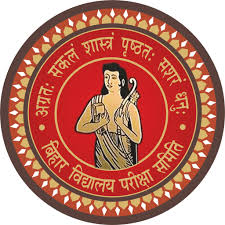Bihar Schools Adopt NCERT Books for Enhanced Educational Standards

Patna, December 30, 2024 - In a transformative step towards standardizing education and enhancing educational quality, Bihar has embarked on a comprehensive initiative to adopt National Council of Educational Research and Training (NCERT) textbooks across its vast network of schools. This significant educational reform aims to unify the curriculum, improve educational outcomes, and prepare students for national level competitions, marking a new chapter in Bihar's educational narrative.
Background and Rationale
The decision to integrate NCERT books into the curriculum of Bihar's schools stems from long-standing issues regarding educational material quality and availability. Historically, Bihar faced challenges with textbook distribution, often leading to a scenario where students either had no books or had to rely on costly alternatives from private publishers. This disparity in educational resources had been a bottleneck in achieving educational equity and excellence.
Bihar's educational authorities, including the Bihar School Examination Board (BSEB) and the State Council of Educational Research and Training (SCERT), have recognized the need for a uniform, high-quality curriculum. The adoption of NCERT textbooks is seen as a solutions-oriented approach to these challenges, providing students with materials that are not only comprehensive but also aligned with national educational standards.
Implementation Strategy
- Distribution: The Bihar State Text Book Publishing Corporation Ltd. has been tasked with the massive undertaking of distributing NCERT textbooks across all schools. This includes both rural and urban regions, ensuring that no student is left behind due to logistical issues.
- Digital Access: Recognizing the digital divide, SCERT has made PDF versions of these textbooks available online. This move is intended to bridge the gap for schools and students in remote areas where physical books might not reach promptly.
- Training and Adaptation: Teachers across the state are undergoing training sessions to adapt to the new curriculum materials. Workshops and seminars are being conducted to familiarize educators with the content, pedagogy, and assessment methods associated with NCERT books.
- Monitoring and Support: A dedicated team from the education department will monitor the transition process, assess the impact on student learning, and provide ongoing support to schools. Feedback mechanisms are in place to address any teething issues swiftly.
Challenges and Mitigations
- Logistics: Distributing books to every corner of Bihar, known for its logistical challenges, remains a significant hurdle. The education department has collaborated with local governance bodies to ensure timely delivery, employing local volunteers and using government infrastructure for reach.
- Digital Divide: While digital copies are beneficial, not all areas have reliable internet access. The government has launched a parallel initiative to enhance connectivity in educational institutions, particularly in underserved areas.
- Teacher Preparedness: There's a concern that not all teachers might be equally ready for this transition. To counter this, the state has planned a phased approach, with continuous professional development programs.
Impact and Future Prospects
The adoption of NCERT books is expected to have a profound impact on Bihar's educational landscape:
- Curriculum Uniformity: Students from Bihar will now be on par with their peers from other states, benefiting from a curriculum designed to meet national educational standards.
- Competitive Edge: With textbooks that prepare students for national exams like NEET, JEE, and various Olympiads, Bihar students are anticipated to perform better in these competitions.
- Educational Quality: There’s an optimism that this will elevate the overall educational quality, potentially reducing dropout rates and improving literacy.
- Long-term Vision: This initiative aligns with broader educational reforms in Bihar, including infrastructure upgrades, teacher recruitment, and digital education expansion, aiming to make Bihar a model state for education in India.
As Bihar moves forward with this educational overhaul, the coming years will reveal the tangible benefits of this initiative. Stakeholders are watching closely, hopeful that this step will not only improve academic outcomes but also contribute to the socio-economic development of the state by fostering an educated, skilled workforce.
